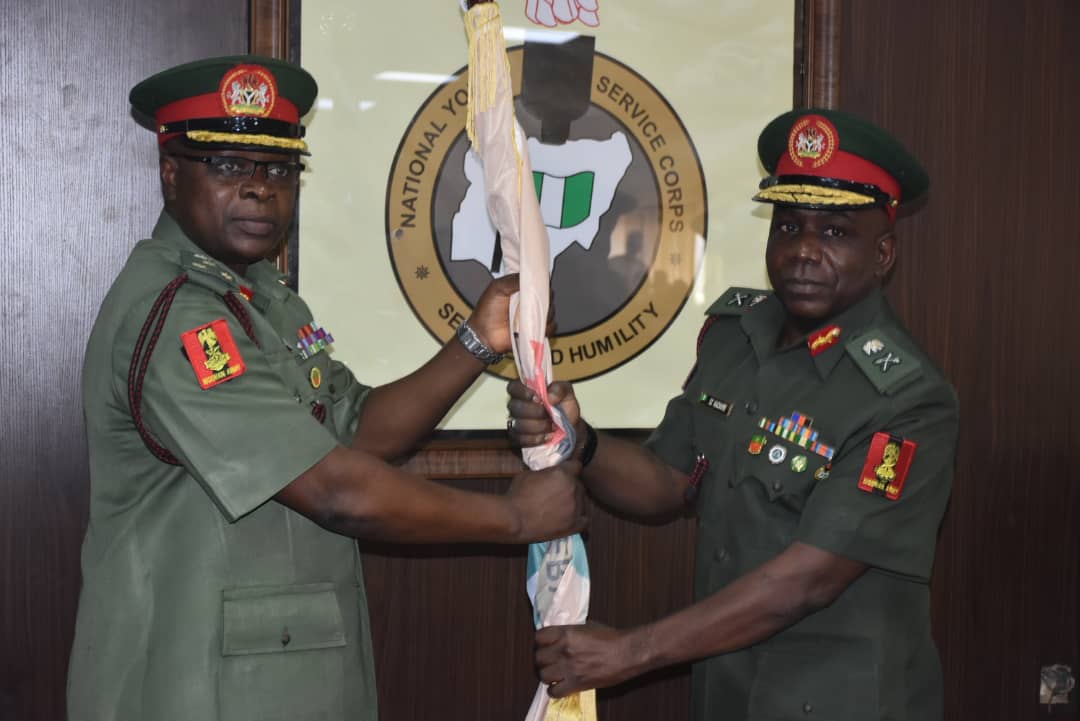Advocacy, value re-orientation campaign as tools for fighting insurgency
The Minister of Information and Culture, Alhaji Lai Mohammed, recently visited some areas affected in Borno by the activities of Boko Haram insurgents to obtain information that could help in the fight against terrorism. The minister, accompanied by some journalists, paid an inspection visit to the Theatre Command of the Operation Lafiya Dole in Maiduguri, Bama, Konduga, and other areas affected by the crisis. Expressing concern about level destruction in the areas, he said that his ministry would inaugurate a national security campaign against insurgency to sensitise Nigerians to the need for active participation of individuals in security matters.
“Intelligence gathering and robust advocacy would be used to sensitise Nigerians on the need to wage war against the insurgents. “No nation succeeds in the fight against insurgency without the civilian component; so, we will let Nigerians know that the fight against insurgency is a national issue,’’ the minister said when he visited a camp of Internally Displaced Persons (IDPs) in Bama.
According to him, the Federal Minister of Information and Culture will roll out national jingles to educate Nigerians on the need to be vigilant and report any suspicious movements to security agencies. He noted that although security awareness messages had been going on as broadcast in many radio and television stations, there should be more awareness campaign, especially at the grassroots. “I urge Nigerians to be vigilant in public places and ensure that they know their neigbours’ means of livelihood with a view to complementing the military’s efforts against the insurgents.
”I also call for synergy between the military and the media to enhance mutual understanding in the war against insurgency because security is everybody’s business,’’ he said. Maj.-Gen. Yushau Abubakar, the Theatre Commander, Operation Lafiya Dole, also said that every Nigerian had a role to play to complement the military’s efforts at ending insurgency.
gency. In his response, Gov. Kashim Shettima of Borno acknowledged that Mohammed was the first Minister of Minister of Information and Culture that visited the state to get firsthand information on the war against insurgency. The governor said the state had witnessed unimaginable destruction of 27 local government areas from 2009 to date by the insurgents. Shettima, who blamed the insurgency on poverty and unemployment, urged the Federal Government to address the problems of poverty, unemployment and lack of hope for the youth.
Beside this, the minister stressed that there should be effective value re-orientation for positive attitude to sustain the ethics and values among Nigerians. “We need to re-inject values into our society as value reorientation is imperative to the achievement of the change agenda of the present administration,’’ he said recently in a meeting in Abuja. He said his ministry would soon begin a nationwide campaign against indiscipline, African-time syndrome and loss of social norms and values.
“I have convened to present to you the template for the massive, nationwide re-orientation campaign to be embarked upon by this ministry very soon. “Those invited to this meeting have been painstakingly selected because I believe they have the necessary expertise to help drive the campaign. “However, let me state unequivocally, that everyone in the Ministry of Information and Culture as well as its parastatals, is key to the campaign. “This is because as the lead ministry, we must first buy into the campaign before we can propagate it,’’ he said.
The minister said that the National Orientation Agency would spearhead the campaign to ensure positive change of attitude, values and behaviours among Nigerians. “Make no mistake about it, we need to change the way we do things in Nigeria; it is important to let our people know that they cannot continue to do things the same way and expect a different result. “The impending campaign must take on indiscipline, the lack of respect for time, loss of our time-tested values and generally lead to attitudinal change in such a way that there will be a paradigm shift in the way we do things.,’’ he noted.
The minister said the change agenda of the present administration could only succeed if Nigerians decided to change their attitude. Muhammed said the merger of information and culture would make the ministry to drive the change agenda effectively. Sharing similar sentiments, an Islamic scholar in Abuja, Alhaji Mufutaudeen Balogun, urged the religious leaders to inculcate moral values in children. He said the inculcation of education and moral teachings were fundamental to national development. “One of the purposes of acquiring knowledge is to gain the good of this world, not to destroy it through wastage, arrogance and reckless pursuit material comfort.
”Broad steps should be taken by our religious leaders to inculcate moral values in our children in the early childhood since their hearts will be pure at that tender age. “Once we have that assistance in guidance, there will be no more violence or terrorism,’’ Balogun said. In his view, Alhaji Nuru Khalid, the Chief Imam of Apo Legislative Quarters Mosque, Abuja, observed that security challenges had, over the years, become a concern in the world. He urged Nigerians to support government’s programme aimed at de-radicalising the thoughts of the youth.
”Religion is the tool they (insurgents) use to indoctrinate extremism in the minds of our children; they misinterpret our scripture to radicalise the youth against us but religious leaders have a duty to discourage this,’’ he said. For inclusive advocacy, the Primate of Anglican Communion, Most Rev. Nicholas Okoh, insists that all religious leaders must support the Federal Government in fighting terrorism through their sermons on the need to ensure peace in the country.








